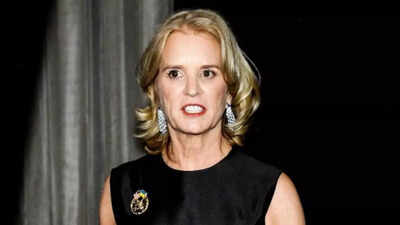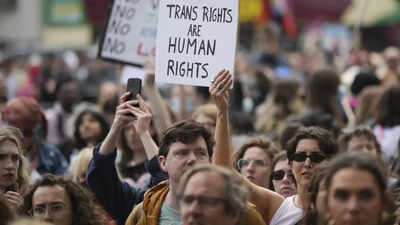Orbn's Threat to Sanctions on Russian Assets Raises Concerns for EU and G7 Financial Stability

The political landscape in Europe is becoming increasingly tense as Hungary's Prime Minister Viktor Orbn threatens to block the renewal of EU sanctions on Russian assets. This warning has triggered alarm bells among European leaders, particularly with regard to the potential financial repercussions for taxpayers. Estonias foreign minister, Margus Tsahkna, has been vocal about the implications of such a move, suggesting it could burden European taxpayers with a significantly larger bill to support Ukraine amidst its ongoing conflict with Russia.
In an interview with the Financial Times, Tsahkna outlined the critical situation surrounding approximately 210 billion of frozen Russian assets. He indicated that if Orbn were to follow through on his threats and successfully push for sanctions to be lifted, it would not only jeopardize the security of these assets but also leave the governments of the G7 and the EU liable for substantial multibillion-euro loans previously extended to Ukraine. These loans were backed by the frozen Russian assets, which have been a vital financial lifeline for Kyiv.
Last year, the EU and G7 countriescomprising the United States, Canada, Japan, France, Italy, Germany, and the United Kingdommanaged to utilize profits derived from around 260 billion in frozen assets globally to secure a loan of 50 billion to support Ukraine during its time of need. If these assets were to be unfrozen because of a lapse in sanctions, each EU member state, particularly the EU and the US, could be facing liabilities of approximately 20 billion related to the loan. Tsahkna expressed his concerns, stating, The problem [is] that these assets which are guaranteeing this loan will be gone.
The urgency of the situation is heightened by the fact that sanctions are set to expire at the end of July, and any renewal requires unanimous agreement from all EU member states. As officials predict Orbn may take a more aggressive stance in upcoming discussions, the stakes are exceedingly high. Most of the frozen assets in question are held at Euroclear, a central financial intermediary based in Belgium, complicating the scenario further.
Tsahkna issued a stern warning, indicating that if Hungary were to block the renewal of sanctions, the consequences could be dire: If they are going to block it, then the sanctions will be down. And the central bank assets will be delivered to Russia, to [Vladimir] Putin, as an award. We cannot let it happen. The implications of such an action would extend far beyond Hungary, affecting the financial stability of the entire region and undermining the efforts made to support Ukraine.
Recognizing the urgency of the issue, the European Commission has been working on developing a contingency plan in case the sanctions rollover is unsuccessful. However, EU officials have noted that many legal pathways are fraught with difficulties. Tsahkna emphasized the need for a coalition of the willing that may need to extend beyond the EU to include G7 nations and other allies such as Norway, in order to navigate the complexities of this situation.
Estonia has strongly advocated for G7 countries to seize the Russian assets rather than merely allowing them to remain frozen under sanctions. Tsahkna argued, It would be the most clear and most understandable solution. However, this approach has encountered resistance from several EU and G7 members, who caution that such a move could potentially violate international law and weaken trust in the euro. Particularly vocal on the matter has been Belgium, which holds approximately 190 billion of the frozen assets at Euroclear. Belgian budget minister Vincent Van Peteghem stated, Confiscation is not an option for the moment due to all the risks that are related to it. He further argued that maintaining the status quo with the frozen assets might provide leverage during potential peace negotiations with Russia.
Tsahkna expressed an understanding of Belgiums hesitance to pursue asset seizures, acknowledging the complexities involved and emphasizing the necessity of a collaborative decision among a group of states, ideally encompassing the entire G7. He also pointed out the importance of continuing negotiations with Hungary, noting Orbn's reliance on EU funds amidst challenges facing the Hungarian economy, which may temper his hardline stance.
The situation is further complicated by Russia's attempts to access these frozen assets. Ukrainian officials have reported that Russia is exploring ways to sell portions of the assets to private investors, who would presumably regain control of them once sanctions are lifted. However, Tsahkna dismissed these schemes as impractical, stating definitively, Of course Russia would like to use their frozen assets to bargain and make deals. But the fact is that they dont have these assets; they are frozen in Europe.
Ultimately, Tsahkna noted that the future of the sanctions and the fate of the frozen assets are largely tied to the outcome of peace negotiations, which are expected to be influenced by the United States. He conveyed the uncertainty surrounding the timeline, referencing comments made by former President Trump indicating that he would act decisively by the end of April if a resolution isnt reached.
This complex geopolitical situation highlights the fragile balance between economic sanctions, international law, and the ongoing humanitarian crisis in Ukraine, as both EU and G7 nations grapple with how best to respond to Russia's aggression.


























